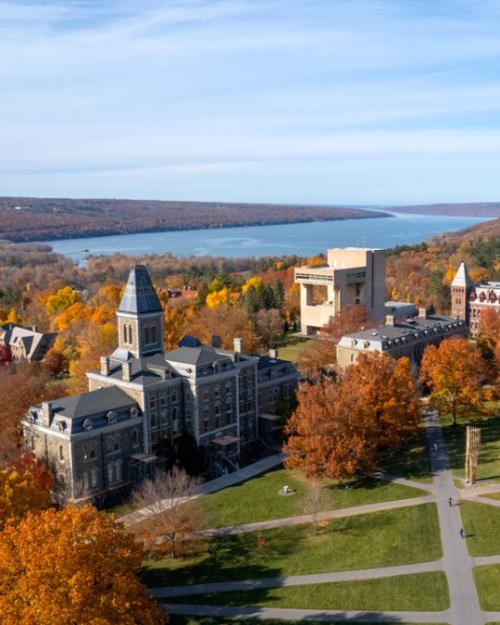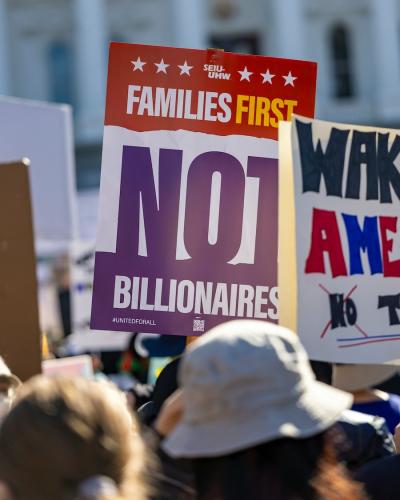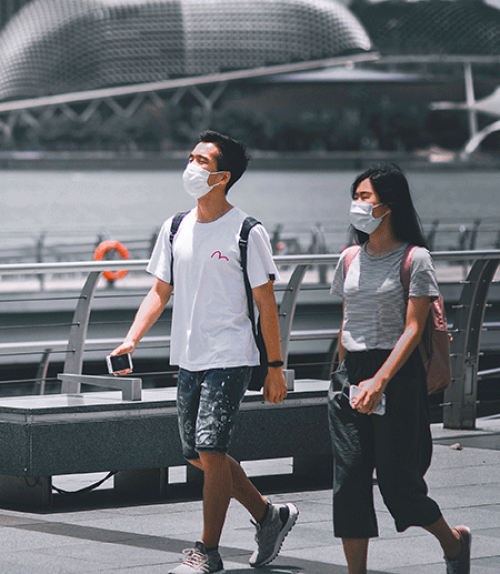As the coronavirus pandemic escalated in the United States, reports of bias and hostility against immigrants and Asian Americans also grew.
New research supported by a rapid response grant from the Cornell Center for Social Sciences (CCSS) will study public attitudes about COVID-19 across the country and whether they are linked to increased social bias regionally or nationally.
The rapid grant, seeding the first phase of a broader project integrating multiple sources of public opinion data, will help Jonathon Schuldt, associate professor of communication in the College of Agriculture and Life Sciences (CALS), partner with SurveyMonkey to analyze one of the largest datasets about COVID-19 attitudes, including more than 150,000 survey interviews conducted since February.
“This project will allow us to see at a more fine-grain level of analysis the map of how COVID attitudes vary across regions of the U.S.,” Schuldt said. “Diverse societies need to understand when and where social hostility might result from these kinds of large-scale social disruptions.”
“Understanding Increased Social Bias During the COVID-19 Crisis in the United States” is one of nine research projects awarded a total of nearly $110,000 in rapid response grants involving 16 faculty members from four colleges.
“We believe that social science will play a crucial role in understanding the crisis of COVID-19 and future crises,” said CCSS co-directors Sahara Byrne, professor of communication in CALS, and Peter Enns, associate professor of government in the College of Arts and Sciences (A&S).
Additional projects receiving grants, including two funded in partnership with the Cornell Atkinson Center for Sustainability, are:
• “Moral Values and Perceptions of COVID-19 Impact and Recovery” is a collaboration between John Doris, the Peter L. Dyson Professor of Ethics in Organizations and Life in the Charles H. Dyson School of Applied Economics and Management, in the Cornell SC Johnson College of Business, and professor of philosophy (A&S); Kevin Kniffin, assistant professor in Dyson (SC Johnson); and Laura Niemi, visiting assistant professor of psychology (A&S). The researchers will use online experimental social psychology methods to investigate the effect of moral values on the stigmatization of COVID-19 victims and willingness to help affected communities. Findings will have implications for effective public messaging to encourage prosocial and economic recovery.
• With “A Comparative Study of Expertise for Policy in the COVID-19 Pandemic,” Stephen Hilgartner, professor of science and technology studies (A&S), will join a team of scholars from 10 nations analyzing the challenges of translating knowledge into policy during a fast-moving, global crisis.
• Shanjun Li, the Kenneth L. Robinson Professor of Applied Economics and Public Policy in Dyson (SC Johnson), and Panle Jia Barwick, associate professor of economics (A&S), will measure the economic and environmental impacts of COVID-19 with data from the U.S. and China, putting big data, machine learning and economic modeling to work where official statistics are in question. “Measuring the Economic and Environmental Consequences of COVID-19” was funded in collaboration with Cornell Atkinson.
• Anthony Ong, professor of human development in the College of Human Ecology, will partner with Tara Gruenewald, associate professor of psychology at Chapman University, on “Social Isolation, Loneliness, and Prosociality During COVID-19.” Recruiting a national sample of 2,000 adults for a four-month, three-wave longitudinal study, the scholars will examine whether a brief prosocial intervention can alter perceptions of loneliness and enhance optimal pandemic coping behaviors.
• Tom Pepinsky, professor of government (A&S), will team up with Shana Kushner Gadarian, associate professor of political science at Syracuse University, and Sara Wallace Goodman, associate professor of political science at the University of California, Irvine, on “Coronavirus, Health Behavior, and Public Policy.” Building on earlier work funded by the National Science Foundation, the rapid grant will support the third and fourth waves of a panel survey of 3,000 Americans on the political foundations of health behavior in response to COVID-19, probing links to partisanship, xenophobia/anti-immigrant bias, economic hardship, emotions and prosocial behaviors and policy preferences.
• Bryn Rosenfield, assistant professor of government (A&S), will pursue “CoRUS: Coronavirus in Russia and Ukraine Survey,” examining citizens’ willingness to trade rights and liberties for perceived security during the pandemic, which has been widely seen as a boon to autocrats.
• With “Implications of Course Enrollment Structure for the Potential of Epidemic Spread on a College Campus,” Kim Weeden, the Jan Rock Zubrow ’77 Professor of the Social Sciences in the Department of Sociology (A&S), and Benjamin Cornwell, associate professor of sociology (A&S), will use student transcript data to map and evaluate the social structural conditions for the spread of COVID-19 on college campuses, including how clusters of course offerings, the timing of courses throughout the week and mode of class instruction affect the network’s structure.
• John Zinda, assistant professor of global development (CALS); Lindy Williams, professor of global development (CALS); and David Kay and Robin Blakely-Armitage, senior extension associates with the Community and Regional Development Institute in the Department of Global Development (CALS), will study “Flood Risk in COVID-19 Context.” The project funded in collaboration with Cornell Atkinson will redesign a 750-household questionnaire on flood risk to incorporate parallel measures of COVID-19 risk perception and behavior, testing how self-reported perceptions and responses vary between the two risk profiles.





